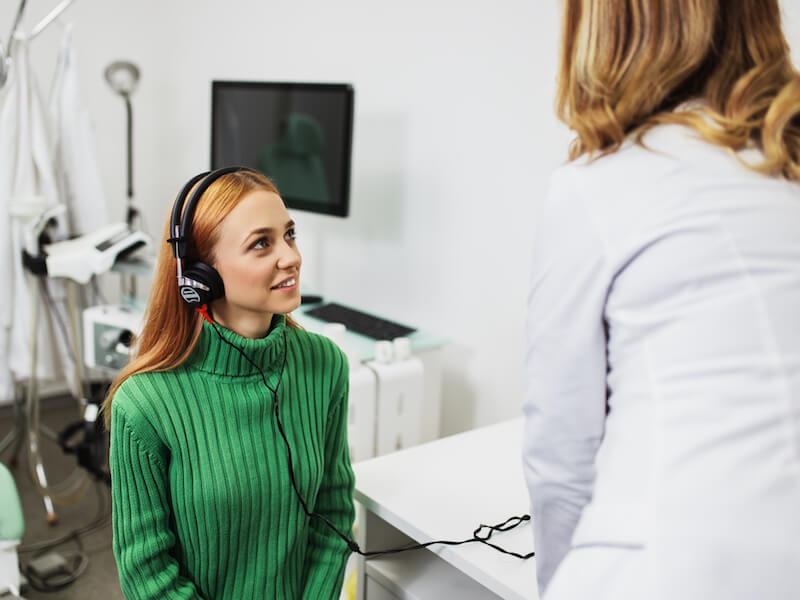
Our lives are busy and chaotic – from our jobs to cooking food to social events. Having your hearing tested most likely doesn’t seem like something you can spare the time to do. And perhaps you don’t even recognize any hearing loss – so you think a hearing test can wait.
You shouldn’t put it off – here’s why:
1. You Can Stop Further Hearing Loss
Many individuals don’t appreciate how serious their hearing loss is becoming because it progresses so slowly. As time passes, they start compensating and making lifestyle changes without recognizing it. And because they don’t know they have hearing loss, they continue to engage in activities that make their hearing loss worse.
But knowledge is power.
Getting your hearing examined can be eye-opening. You can slow the advancement of hearing loss but there isn’t any way to undo the damage already done.
If you are experiencing moderate hearing loss, you will want to find out how to keep it from getting worse.
The progression of hearing loss can be slowed by more efficiently managing chronic disease, reducing your blood pressure, and exercising more.
Your ears will be protected from further damage by using ear protection when exposed to loud sounds and reducing your exposure.
2. You Don’t Even Realize How Much You’re Missing
You might have gradually forgotten your appreciation for music if you’ve been experiencing moderate hearing loss. Not needing to ask family and friends to repeat themselves when they talk to you is something you might not even recall.
You may find yourself getting further away from doing your favorite activities and spending time with friends.
Having a hearing test allows you to evaluate your degree of hearing loss. In most instances, we can help improve your hearing.
3. You Might Improve Your Hearing Aid Experience
If you already use a hearing aid, you may not want to use it. You may not feel like it enhances your listening experience. Getting your hearing retested by a hearing specialist will help you find out if you have the best hearing aid for your type and level of hearing loss and whether it’s effectively adjusted.
4. It’s Possible That You’re Already at Risk
Thirteen percent of people 12 and older in the U.S. (30 million people) have measurable hearing impairment in both ears. And debilitating hearing loss is experienced by 8.5% of adults 55 to64. Environmental factors are usually to blame. It isn’t simply about aging. Most of it is caused by exposure to loud sound.
If you participate in the following things, you’re at a greater risk:
- Attend concerts, plays, or movies
- Ride loud vehicles including a snowmobile, ATV, or motorcycle
- Hunt or target shoot with firearms
- Mow the lawn
- Listen to loud music or use earbuds
- Work at a noisy job
Hearing loss can be a consequence of any of these common activities. You need to go have your hearing examined by a hearing professional as soon as possible if you detect a decline in your ability to hear regardless of what your age is.
5. It Will Improve Your Overall Health
If you ignore your hearing loss you will have a significantly higher risk of the following:
- Social isolation (preferring to be alone)
- Slow healing or frequent hospital admissions
- Dementia/Alzheimer’s
- Falls that cause injuries
- Anxiety
- Missing or skipping out on doctor appointments
- Depression
- Longer time spent in hospitals and rehab
Getting your hearing checked is about more than just your hearing.
6. Restore Tense Relationships
Untreated hearing loss can try the patience of your family members and friends. It’s more common for misunderstandings to take place. Everyone will get irritated with the situation, including you. Regret and bitterness can be the outcome. Friends and family members might even exclude you from get-togethers rather than needing to constantly repeat themselves.
But misunderstandings and stressed relationships can be prevented by getting a hearing exam and that’s the good news.